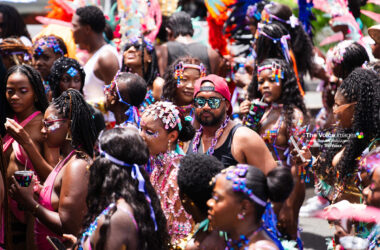WITH a new government in office, one expects that pretty soon, it will begin to pay some serious attention to the island’s diplomatic service, which, if managed wisely, can have a profound impact on this country’s overall development. But this examination must mean more than simply trading one set of diplomats for another.
There are several issues in our diplomatic service that need correcting and if this government is serious about good governance, it will make the decisions that need to be made at this time. Our Ambassadors, High Commissioners, Consuls etc. must be people of integrity and substance who understand and appreciate the importance of tact and decorum in carrying out their responsibilities on behalf of the government and people of St Lucia. They must be able to raise St Lucia’s profile in the countries where they serve, and win friends while lobbying for aid and wooing investors, again, on behalf of the government and country. Our presence in foreign capitals can no longer be seen from the standpoint of putting on a show to indicate that we are there too.
In recent times, it appears that there have been no clear criteria in St Lucia as to what qualifies a person for a diplomatic positing, apart from, of course, allegiance to the government of the day. This has been happening under administrations of both major political parties and should not continue. A diplomat ought to be the face of his entire country in his place of positing and indeed, in the international community. In fact, diplomacy is a career in its own right, not just another job.
Two recent incidents come to mind. The first was the Juffali affair. Our government then did not appreciate the damage that was done to St Lucia’s image and reputation especially after it turned down a request from the British government to help ensure that this rich Saudi Arabian did right by his ex-wife in a British divorce case. Instead our government resorted to legal and constitutional arguments that eventually turned out to be a total waste of time, as far as the issue and how it affected St Lucia was concerned.
Of course, the Juffali appointment itself was the first embarrassment in this saga as our government never informed us that we had a permanent representative at the International Maritime Organization named WalidJuffali. It was only when the matter was blown that we heard of Juffali’s appointment and the fact that he was interested in helping in diabetes research in St Lucia, something people found to be quite convenient, to say the least. We never got to the bottom of this matter anyway, but we need to.
Then this week, St Lucia’s diplomats were fingered for committing driving offences in the U.K. Specifically, the St Lucia High Commission in London was accused of driving a vehicle without insurance. This is a serious offence anywhere in the world and can have serious consequences, especially if the vehicle used becomes involved in a traffic accident.
But that’s not all. Some weeks ago, we commented on the 2013 annual report of the Auditor General which told of a number of unsavoury activities being carried out at these overseas missions, some of them with criminal overtones.
We are aware that the contents of this report were nothing new. In fact, over the years, many of our diplomatic offices overseas have been conducting business like states within a state, even to the point of using funds that belong to this country without permission or explanation. Missions are operated like personal businesses and diplomats have even resisted efforts by the government to hold them to account. Strangely, no one has ever been held accountable, as far as we are aware.
To say that our diplomatic service needs cleaning up is an understatement. We cannot take any and every one, confer on them the titles of Ambassador or High Commissioner and then leave them to their own devices. This has been going for far too long and needs to be arrested.
If it means spending some money to properly train a new cadre of diplomats for our country, then we must do it.
The role, functions, national expectations and operational cost of these overseas missions is another matter that needs inquiring into but we will discuss this another time.













